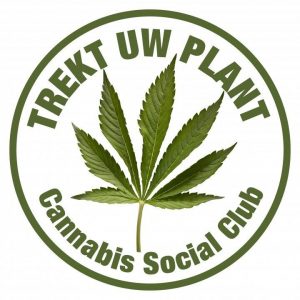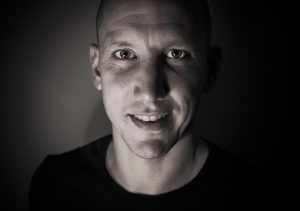Belgium, June 2019: I am convicted along with nineteen other pioneers, based on the 1921 drug law. As a doctor in medical science, researcher, nurse and former humanitarian aid worker, I am all of a sudden demoted to an ordinary criminal, convicted to fifteen months in prison for my volunteering in an Antwerp Cannabis Social Club. After a century of the war on drugs, isn’t it time for a change, especially when it comes to cannabis?
On January 27 2021, the third lawsuit appeal will take place against the defendants of the non-profit organisation “Trekt Uw Plant”*. This is remarkable for two reasons. First, last month the United Nations reclassified cannabis as a less dangerous drug. Second, the Belgian drug legislation will celebrate its centenary in February. The latter led to a civil movement directed by professionals from drug prevention and drug care. Smart on Drugs and Stop1921 are campaigning in favour of the Cannabis Social Club concept.
A tolerated cannabis association
In 2006, Trekt Uw Plant was the first Belgian Cannabis Social Club (CSC) to have its ground rules officially published. Without lucrative purpose, members take care of their own plants and those of other members in small-scale personal cultivation sites. Within the club, there is a maximum of one plant per member taken care of, as is prescribed by the 2005 Belgian decriminalisation guidelines.
The CSC model creates a closed circuit from production over distribution to consumption, leaving no room for organised crime and guarantees product quality. The association was prosecuted twice and was acquitted both times before the Antwerp Court of Appeal in 2008 and 2010. Hereafter, the Antwerp Public Prosecutors office declared in 2012 that due to these acquittals, they were bound to accept the activities of Trekt Uw Plant.
In the meantime, the CSC model was repeatedly put forward by experts as one of the most realistic and obvious options for regulating cannabis non-commercially. The closed circuit from cultivation to consumption, gloriously trumps the Dutch coffeeshop model, where only sales at the “front door” are tolerated, but the coffeeshop’s purchase of cannabis through the “back door” is not. This stimulates organised crime and is detrimental to the product’s quality.
However, mid 2017 it came to the arrest of three members, eighteen search and seizures, and dozens of interrogations. In 2019, the criminal court gave a guilty verdict with suspended prison sentences going up to 20 months. Heavy sentences for twenty individuals who acted solely out of idealism, in all openness and with full financial transparency. This is incredible in light of the history of the club and the previous declarations made by the Public Prosecutor.
Medical cannabis and a blueprint for legal regulation
Being a 39-year-old doctor in medical sciences, I have extensive research experience. I also worked as a nurse in the elderly care, psychiatry, addiction care and international emergency relief for Doctors Without Borders. From 2014, I was a member of Trekt Uw Plant for three years, of which the last two years as a volunteer responsible for the medicinal department, and the last nine months also as an unpaid board member.
The injustice experienced by the medical cannabis consumers in Belgium stimulated me to commit to informing and supporting them in a separate department within the association. Using a blueprint, I advocated for: legal regulation of home cultivation and the CSC model and the protection of medicinal consumers. After having been a powerless witness of famines and wars of authoritarian regimes, I was convinced to be able to fight the cannabis injustice here by our democratic means.
Let’s not kid ourselves, tons of cannabis is needed every year for hundreds of thousands of Belgian cannabis consumers alone. They unite to meet their personal needs safely. Or they source – not without risk – through the black market. It is only logical that after all these years the average (medicinal) cannabis consumer is no longer demanding legalisation and regulation. No, they want to cherish their own solution and don’t want anything to do with police or court.
This whole story leads up to my wish for 2021, a wish that our governments will finally stop the stigmatisation and criminalisation of people who choose for the consumption of a responsible substance that is less harmful than legal drugs like tobacco or alcohol. A high or stoned for soft drugs – often an aid to relieve physical pain or psychological distress, to spirituality, therapy or healing – should not lead to punishment. On the centenary of the Belgian drug legislation and in light of international developments, I continue advocating for a more efficient Belgian cannabis policy, based on humanity.
Dr Stefan Van der Mussele
*The club’s name refers to the Dutch proverb to “pull your plan(t)”, meaning to take care of something without any support, in this case the absence of clear law-making.


